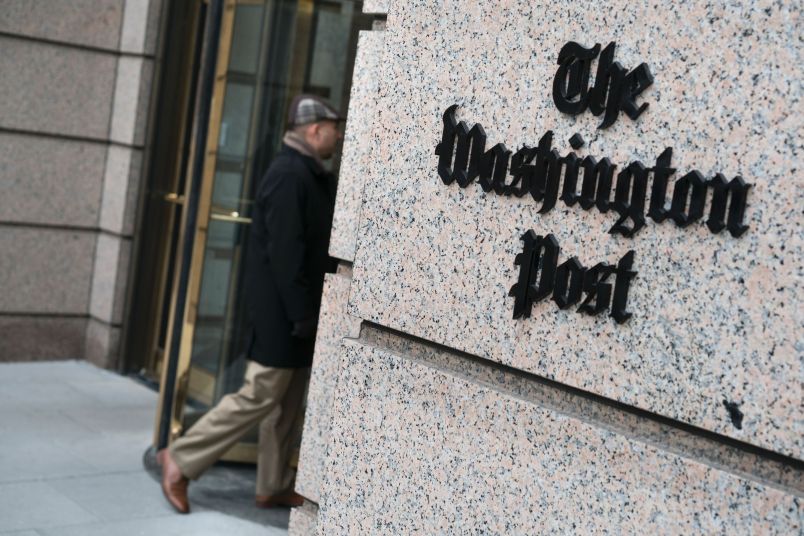Late update: The Washington Post announced Tuesday evening that Somnez was “not in clear and direct violation of our social media policy.”
New statement regarding Post reporter Felicia Sonmez pic.twitter.com/HBt2s5VW68
— Kristine Coratti Kelly (@kriscoratti) January 28, 2020
Hundreds of members of the Washington Post’s news guild signed a letter on Monday in support of Felicia Somnez, the Post reporter who was suspended after she tweeted the Daily Beast’s detailed report on the late basketball icon Kobe Bryant’s rape case.
The letter, addressed to the Post’s executive editor Marty Baron and managing editor Tracy Grant, urged the paper to lift the suspension and provide protection for the journalist, who was forced to leave her home after receiving “an onslaught of violent messages, including threats that contained her home address” for posting the article.
Somnez, a survivor of sexual assault, had posted a link to the Daily Beast’s report without commentary on Sunday following the news of Bryant’s death. She also tweeted a screenshot of the threatening emails she had received, then deleted all the tweets pertaining to the issue. The Post suspended her shortly afterward.
The letter was signed by some of the paper’s high-profile reporters, including Paul Kane, Wesley Lowery, Juliet Eilperin, Josh Dawsey, Ashley Parker and others.
The guild acknowledged that while it was a “a fraught time” to share the report, “we believe it is our responsibility as a news organization to tell the public the whole truth as we know it — about figures and institutions both popular and unpopular, at moments timely and untimely.”
“The Post’s handling of this issue shows utter disregard for best practices in supporting survivors of sexual violence — including the practices we use in our own journalism,” the guild wrote in its letter. “Assault survivors inside and outside this newsroom deserve treatment that is fair and transparent; that does not blame victims or compromise the safety of survivors.”
The guild also slammed the Post’s “arbitrary and over-broad” policy on social media that led to Somnez’ suspension.
“The company should issue a statement condemning abuse of its reporters, allow Felicia to return to work, rescind whatever sanctions have been imposed and provide her with any resources she may request as she navigates this traumatic experience,” the members wrote.
The outlet’s communications office did not respond to TPM’s request for comment on the letter at the time of writing.
After news of the suspension broke, Grant told Post columnist Erik Wemple that Somnez’s tweets had “undermined the work of her colleagues” and that the outlet was reviewing whether they had violated the Post’s social media policy.
On Monday, Somnez provided the New York Times a brief email Baron had sent her regarding her tweet.
“Felicia, a real lack of judgment to tweet this,” Baron wrote with a screenshot of the post. “Please stop. You’re hurting this institution by doing this.”
Somnez also told the New York Times on Monday that she had “expected to get some blowback” for posting the story, but she was troubled by the erasure of Bryant’s alleged misconduct in wake of his death.
“I can understand that it would be difficult for people to read that,” she said. “But it’s also difficult, I imagine, for all of the survivors in the country to see these allegations essentially be erased, which is how I felt in those couple of hours in the newsroom.”



